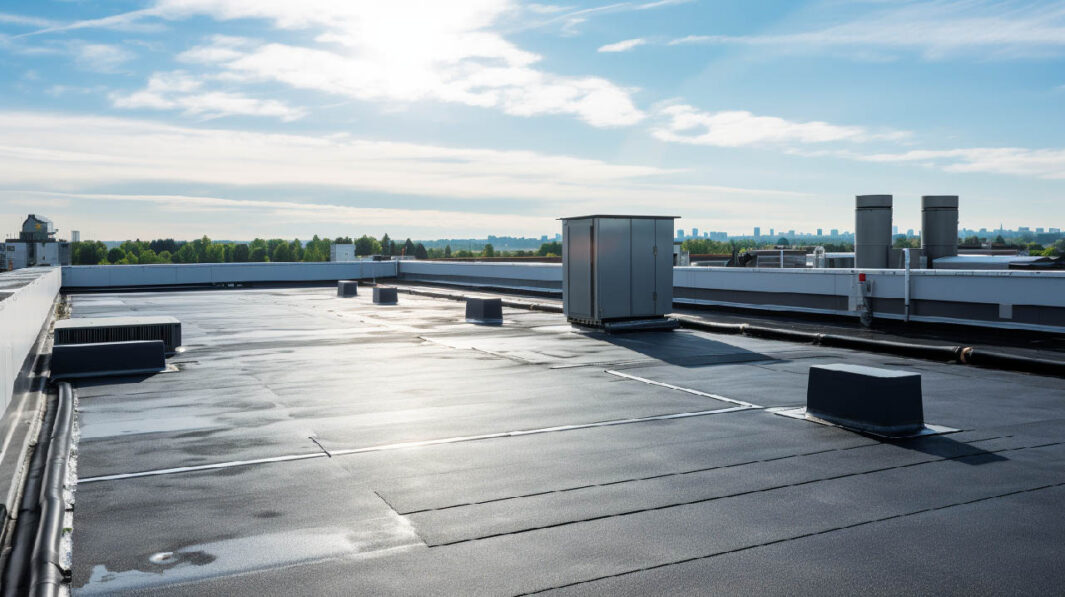Commercial buildings require robust roofing solutions that not only protect the structure but also offer long-term value. With a plethora of options available, making an informed decision can be daunting. Here, we delve deep into the world of commercial flat roofing systems, highlighting their features, benefits, and considerations.
Key Considerations for Commercial Flat Roofing
When it comes to commercial flat roofing, several factors play a pivotal role in determining the best fit:
- Budgetary Constraints: While price is a significant factor, it’s essential to consider the long-term costs associated with maintenance and repairs. Some roofing systems might be cheaper upfront but can incur higher maintenance costs in the long run.
- Quality and Durability: The longevity of a roofing system is paramount. Factors such as the material’s reinforcement, flexibility, brand reputation, and overall characteristics should be evaluated.
- Installation and Disruption: The time taken for installation and the potential disruptions to business operations are crucial. Prefabricated systems, for instance, can speed up the installation process and minimize disruptions.
Delving into Different Roofing Materials
Metal Roofing
Metal roofing stands out for its durability and ability to reflect heat, making it an energy-efficient option. Especially suitable for roofs with a slope greater than 2 inches, metal roofs are non-combustible and resistant to cracks. However, they can be susceptible to leaks around seams and edges. Customization is another advantage, allowing the material to be molded around various angles and protrusions.
TPO (Thermoplastic Olefin)
TPO roofing has gained immense popularity due to its cost-effectiveness and longevity. Comprising a single layer of synthetic material, TPO roofs are energy-efficient, reflecting UV rays and heat. With minimal maintenance requirements, TPO roofs can last over 20 years, making them a preferred choice for many commercial establishments.
EPDM (Ethylene Propylene Diene Monomer)
EPDM rubber roofs are among the most affordable options. Lightweight and easy to install, EPDM roofs can last up to 20 years with proper maintenance. Their resistance to UV rays makes them particularly suitable for sunny climates.
PVC Roofing
While PVC roofing might be on the pricier side, its benefits often justify the cost. Reinforced membranes make PVC roofs resistant to impact damage, and their chemical resistance makes them ideal for manufacturing facilities. With low maintenance and a long lifespan, PVC roofs offer excellent value for money.
Modified Bitumen Roof
Modified bitumen roofs are budget-friendly options that use an asphalt membrane base. While they have a shorter lifespan compared to other materials, their cost-effectiveness can make them an attractive choice for some businesses.
Partnering with the Right Roofing Company
Choosing the right roofing system is just the first step. Partnering with a reputable roofing company in Albany NY, like Home Evolution, ensures that the installation is seamless and meets the highest standards. With experienced roofing contractors in Albany NY, Home Evolution offers unparalleled expertise and guidance in selecting and installing the perfect roofing system for your commercial establishment. Remember, while there are many roofing companies in Albany NY, it’s essential to choose one that understands your unique needs and offers tailored solutions.
Conclusion
Selecting the right commercial flat roofing system requires a blend of budgetary considerations, understanding of material properties, and partnering with the right roofing company. By weighing the pros and cons of each material and seeking expert advice, businesses can ensure that their roofing investment offers long-term value and protection.

